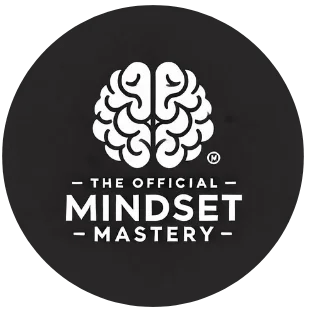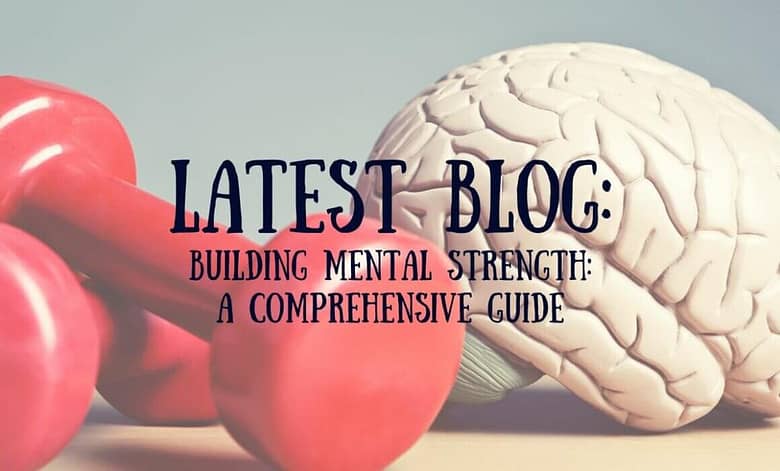Mental resilience is the ability to overcome obstacles with a positive outlook and emotional stability. Building mental resilience is crucial in our fast-paced, unpredictable world. Mental resilience can help people with life’s ups and downs, whether they’re dealing with personal issues, work stress, or social demands. This article discusses ways to build mental resilience to overcome adversity.
Knowing Mental Resilience
Mental resilience is the ability to handle difficult events well. This dynamic method can be improved over time. A resilient attitude helps people accept change, overcome challenges, and recover from failures. Mental resilience can be built by specific activities and routines, allowing people to handle hardship with confidence and optimism (Seligman, 2011).
The Value of Growth Mindset
Psychologists like Carol Dweck recommend a development mindset for mental resiliency. Growth-minded people feel they can improve their intelligence and abilities via hard work. This attitude emphasizes seeing problems as growth opportunities rather than dangers. With a growth mindset, people can approach challenges with curiosity and a readiness to learn, building resilience (Dweck, 2006). Embracing difficulties, persevering through setbacks, and seeking feedback are growth mindset traits that boost mental resilience.
Practice Self-Compassion
Self-compassion helps mental resiliency. It incorporates self-compassion, understanding, and support, especially in tough situations. Instead of harsh self-criticism, self-compassion encourages people to accept their humanity and that everyone suffers and fails. Self-compassion can minimize emotions of inadequacy and humiliation, helping people recover from setbacks. Self-compassion improves emotional well-being and resilience (Neff, 2003). Practicing self-compassion regularly can boost resilience.
Develop Emotional Awareness
Recognizing and understanding one’s own and others’ emotions is emotional awareness. Awareness helps people understand their emotions and stress responses, which builds mental resilience. Emotional intelligence helps people handle situations calmly. Mindfulness and journaling can help people understand their emotions without judgment. Emotional awareness improves resilience and coping (Brackett et al., 2019). By developing emotional awareness, people can better manage their emotions.
Build Strong Relationships
Social relationships underpin mental resiliency. A solid support system can give people the encouragement, understanding, and resources they need to overcome obstacles. Keeping in touch with family, friends, and coworkers can boost resilience. These relationships require honest communication, attentive listening, and support. Research shows that social support improves mental health and resilience (Cohen & Wills, 1985). People can build resilience and belonging by investing in relationships.
Setting Realistic Goals
Setting and achieving realistic goals builds mental resilience. Goals guide and motivate people to overcome obstacles. Breaking goals into digestible steps and celebrating minor wins is crucial. The sensation of accomplishment and self-confidence from this method reinforce the idea that one can overcome problems. According to Locke & Latham (2002), goal-setting boosts resilience by giving people a sense of purpose. Setting realistic goals helps people build resilience and handle life’s hardships.
Building Problem-Solving Skills
Mental resilience requires good problem-solving. Analytical, problem-solving, and decision-making skills help people overcome obstacles. Developing problem-solving abilities entails breaking down difficult problems into smaller, manageable sections, brainstorming solutions, and assessing their efficacy. Critical thinking exercises like puzzles and strategic games help improve problem-solving. Research shows that problem-solving skills boost resilience and adaptation (Greiff et al., 2015). By practicing problem-solving, people can gain resilience and face problems.
Accepting Change
Change is inevitable, and mental resilience requires accepting it. People can adapt and identify chances in new situations instead of rejecting change. Embracing change as an opportunity to grow can boost resilience. Visualization, positive affirmations, and reframing negative thoughts can assist people adjust their change mindset. People who accept change and see it as beneficial are more resilient and better able to handle life’s uncertainties (Hesketh & Cann, 2004). Adopting change helps people adapt and prosper in changing settings.
Gratitude Practice
Gratitude boosts mental strength. By focusing on the good things in life and showing gratitude, people can change their perspective and feel better. A thankfulness diary, where one writes down their blessings daily, can reinforce this habit. Research shows that appreciation improves mental health, life satisfaction, and resilience (Emmons & McCullough, 2003). Daily thankfulness can boost resilience and positivity in difficult situations.
Prioritizing Self-Care
Self-care is essential to mental resiliency. A healthy diet, regular exercise, enough sleep, and enjoyable activities are necessary for well-being. Self-care helps people recharge and manage stress. Saxena et al. (2007) found that self-care improves mental health and resilience. Self-care improves resilience and coping skills.
Getting Professional Help
Building mental resilience may require mental health professional help. Therapy and counseling can help people build resilience and overcome obstacles. Professionals can assist people to understand their feelings, learn to cope, and handle challenging situations. Therapeutic therapies promote resilience and mental health (Hobfoll et al., 2007). Professional help promotes mental resilience and emotional well-being.
Conclusion
Building mental resilience takes time and dedication. Having a growth attitude, self-compassion, emotional awareness, and healthy connections can help people overcome adversity. Mental resilience can be improved by setting realistic objectives, learning problem-solving skills, accepting change, being grateful, prioritizing self-care, and getting professional help. Resilience is about addressing obstacles head-on with courage and drive. These techniques can help you build mental resilience to face life’s challenges and become stronger.
References
M. A. Brackett, S. E. Rivers, and P. Salovey (2019). Intelligent Emotions. J. C. Thomas (Ed.), Clinical Handbook of Psychological Disorders (106-126).
S. Cohen, T. A. Wills (1985). Buffering hypothesis, stress, and social support. Psychological Bulletin, 98(2), 310-357.
Charles S. Dweck (2006). Mindset: New Success Psychology. Random House.
R. A. Emmons, M. E. McCullough (2003). An experiment on gratitude and subjective well-being in daily life. Personality and Social Psychology, 84(2), 377-389.
S. Greiff, P. C. Kyllonen, and A. Fischer (2015). Complex problem-solving assessment. Intelligence 53:36-51.
T. L. Hesketh, A. J. Cann (2004). Staff reaction to organizational change. Occupational Medicine 54(6):377-382.
S. E. Hobfoll, R. J. Johnson, and N. Ennis (2007). Impact of resource loss and gain on inner-city women’s emotions. 395-426, Journal of Personality 75(2).
E. A. Locke, G. P. Latham (2002). A 35-year journey to a practical goal-setting and task motivation theory. American Psychologist, 57(9), 705-717.
K. D. Neff (2003). Self-compassion scale development and validation. Self and Identity 2(3):223-250.
Saxena et al. (2007). Mental health gap response by WHO. International Mental Health Systems Journal, 1(1),




